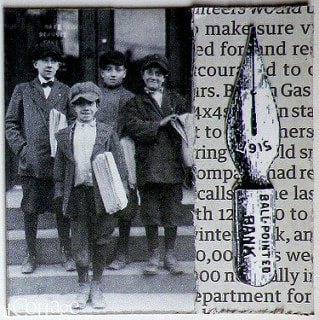| Receive a check in the mail? Beware ANN CARRNS Fraud involving fake checks has mushroomed in recent years, and the victims are often young adults, a new federal analysis found. In fake check schemes, criminals send checks to their victims, who deposit them. The money initially shows up in the victims’ bank accounts. Then the criminals — using a variety of ploys, like phony job offers, persuade the victims to send some of the money back, often by wire transfer or a gift card. The check eventually bounces, leaving the victim owing money to the bank. |
Reports of check fraud have risen 65% since 2015, and the typical loss is about $2,000 the Federal Trade Commission reported this month. People in their 20s are more than twice as likely as those over 30 to report losing money in the schemes, the commission found.
One reason young people may be more likely to become victims is that they are probably less familiar with how paper checks work, experts say. While federal rules require that banks make funds available quickly for withdrawal — usually within a day or two — there can be a delay of several days or even weeks before a check is fully verified.
Also, check ruses often involve an offer of employment, which young adults may find attractive.
In one account detailed in a Better Business Bureau report in 2018, a student in Oakland, Calif., received an offer at her college e-mail address. The message said she could earn $250 a week by driving her car around after having it “wrapped” with an ad for Mountain Dew. (Banks have issued warnings about “shrink wrap” scams.)
She took the job to help pay her tuition, and received a check in the mail for $4,850 — ostensibly to pay for the wrap job. She deposited the check and the next day was able to withdraw $3,500, which she redeposited — as instructed — into a separate bank account held by the “car specialist.”
The student grew suspicious, however, when she received a text message telling her to withdraw an additional $500 and put it on an iTunes gift card, and she reported the situation to the police. The criminal’s bank account had been closed, and the money was gone. Her own bank demanded that she repay the $3,500, so she agreed to an installment plan to pay off her losses.
People fall prey to schemes because of “optimism bias,” a bureau report found; they think typical victims are older, gullible or even stupid and don’t see themselves that way. In truth, the Better Business Bureau report noted, “we are all vulnerable.”
Ann Carrns writes for the New York Times


 RSS Feed
RSS Feed